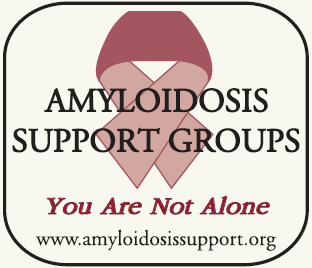Trusted Resources: Education
Scientific literature and patient education texts
From older to younger: intergenerational promotion of health behaviours in Portuguese families affected by familial amyloid polyneuropathy
source: European Journal of Human Genetics
year: 2017
authors: Carla Roma Oliveira, Alvaro Mendes, Liliana Sousa
summary/abstract:The role of older generations in families with hereditary diseases has been recognised and associated to their function as guardians of the family’s medical history. However, research is scarce in examining the roles that older generations play in terms of health promotion and risk management towards younger generations, which is particularly evident with incurable genetically inherited disorders such as familial amyloid polyneuropathy (FAP) ATTR Val30Met. This qualitative exploratory study examines the roles that older generations play towards younger generations, in terms of health promotion and risk management, in families with FAP. It also explores the intergenerational flow by analysing who from the older generation plays what role(s) towards whom from the younger generation. This study adopts the critical incidents technique. The sample comprises 18 participants that reported 76 critical incidents. The interviews were audio-taped and submitted for content analysis with the main findings suggesting four roles performed by the older family members towards the younger ones: modelling, encouraging, informing and supporting. The intergenerational flow takes place mostly between women, from mother to daughter, and from older affected individuals to young pre-symptomatic carriers. The older generations can be involved in the clinical practice as partners in supporting younger relatives in families with FAP. Clinical genetic services and the health-care system more broadly might want to consider these roles and the intergenerational flow of support so that this information can be used to maximise health promotion behaviours in at-risk families.
organization: University of Aveiro, Portugal; Associação dos Lares Ferroviários, Entroncamento, Portugal; Universidade do Porto, Porto, PortugalDOI: 10.1038/ejhg.2017.40
read more full text
Related Content
-
Taste of Ocean City & Slide for AmyloidosisTaste of Ocean City (OC) is an event wit...
-
Scarborough Health Network (SHN) Cardiac Amyloidosis ClinicAt Scarborough Health Network, caring fo...
-
Maria del Carmen NadalMaria del Carmen Nadal is the Presiden...
-
Stress Management Following hATTR Amyloidosis DiagnosisLiving with hATTR amyloidosis can cause ...
-
Transthyretin Cardiac Amyloidosis in Black AmericansTransthyretin-related cardiac amyloidosi...
-
Features of Atrial Fibrillation in Wild‐Type Transthyretin Cardiac Amyloidosis: A Systematic Review and Clinical E...Aims: Wild-type transthyretin (ATTRwt) ...
-
Amyloidosis FoundationThe Amyloidosis Foundation began with th...
To improve your experience on this site, we use cookies. This includes cookies essential for the basic functioning of our website, cookies for analytics purposes, and cookies enabling us to personalize site content. By clicking on 'Accept' or any content on this site, you agree that cookies can be placed. You may adjust your browser's cookie settings to suit your preferences.
More information
The cookie settings on this website are set to "allow cookies" to give you the best browsing experience possible. If you continue to use this website without changing your cookie settings or you click "Accept" below then you are consenting to this.
To improve your experience on this site, we use cookies. This includes cookies essential for the basic functioning of our website, cookies for analytics purposes, and cookies enabling us to personalize site content. By clicking on 'Accept' or any content on this site, you agree that cookies can be placed. You may adjust your browser's cookie settings to suit your preferences.
More information
The cookie settings on this website are set to "allow cookies" to give you the best browsing experience possible. If you continue to use this website without changing your cookie settings or you click "Accept" below then you are consenting to this.



 myBinder
myBinder




